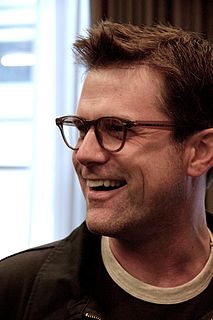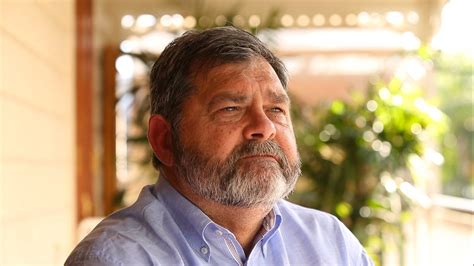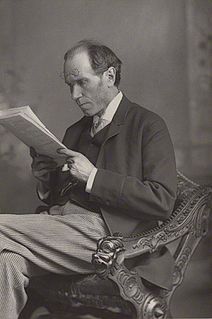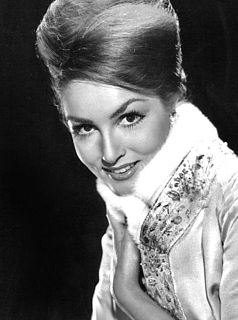Top 1200 Essay Writing Quotes & Sayings - Page 2
Explore popular Essay Writing quotes.
Last updated on April 17, 2025.
I had tried writing novels for many years, and they always escaped me. For a long time, I thought, 'It's just not in me to write a novel. It's not something I'm able to do.' It seemed like everything I wrote naturally ended at the bottom of page three. A picture book, three pages; an essay, three pages.
My presence isn't simply about "character" - I'm present in every part and particle of the thing, in the sound and rhythm of the sentences, in the shifting tones and the selection of details, in the comedy, the sadness, and the confusion. For the space of an essay, I'm the air you breathe, everywhere and nowhere. With a personal essay, I don't think you'd want it any other way. You ought to have the sense of an encounter, the impression of having met someone. In my essays, for better or worse, that someone is me.
I have these guilts about never having read Chaucer but I was talked out of learning Early Anglo-Saxon / Middle English by a friend who had to take it for her Ph.D. They told her to write an essay in Early Anglo-Saxon on any-subject-of-her-own-choosing. “Which is all very well,” she said bitterly, “but the only essay subject you can find enough Early Anglo-Saxon words for is ‘How to Slaughter a Thousand Men in a Mead Hall’.
Purple light passed over the paper, but nothing happened. "Next!" Amy said. She was sure the man in black was going to burst in on them any second. "Whoa!" Dan said. Amy gripped his arm. "You found it?" "No, but look! This whole essay - 'To the Royal Academy.' He wrote a whole essay on farts!" Dan grinned with delight. "He's proposing a scientific study on different fart smells. You're right, Amy. This guy was a genius!
I hate the tribal hatred thesis - in Yugoslavia and Rwanda and places like that they kill each other because that's just what people do there. I think it's profoundly ignorant. I was astonished when Samuel Huntington wrote his famous clash of civilizations essay in response to the Yugoslavian war. I was on the streets in Sarajevo and every other person I met came from a mixed marriage. And here is Professor Huntington from Harvard writing this is a clash of civilizations. That was absurd.
If you look around at the news industry, there are more and more sites clamoring for that kind of writing, whether it's an Ideas section or personal essay series or longform. Readers are hungry for it. It's like prestige TV, though; it's execution-dependent. You have to figure out the right advertiser or sponsor, and you have to deliver, you can't just feed the beast.
I suppose I like certainty as much as anyone else, but I also feel that the hidden costs are high, that we pay a heavy price for our convictions. This is a human issue as well as a writing issue - at least in the personal essay as I practice it. Any real essayist knows that certainty is an editorial decision, arrived at not through conviction but through suppression, the denial of a whole range of possibilities, of alternatives that we jettison, sometimes necessarily, in order to steady the ship.
Whereas if you were writing an op-ed piece or an essay, somebody would be asking, "What's your point?" With poetry you can stay in a moment for as long as you want. Poetry is about metaphor, about a thing standing in for something else. It's the thing that opens out to something else. What that something else is changes for readers. So what's on the page - it falls away.
What I think is important about essayists, about the essay as opposed to a lot of personal writing is that the material has to be presented in a processed way. I'm just not interested in writing, "Hey, this is what happened to me today." You get to a place that has very little to do with your personal experience and talks about some larger idea or something in the culture. I don't think you can get to that unless you have had a lot of time to gestate and maybe if I was taking a lot of notes while stuff was going on, I wouldn't be able to get to that place as easily.
I never start with what lots of people think of as a subject or a theme. They're school words, not art words. So, writing essays busts my arse because the art is in addressing the subject. I find it really difficult and monstrously time-consuming. In an essay I need to employ my imagination but it's indentured in a way it's not when I'm free to make everything up.
Writing objects to the lie that life is small. Writing is a cell of energy. Writing defines itself. Writing draws its viewer in for longer than an instant. Writing exhibits boldness. Writing restores power to exalt, unnerve, shock, and transform us. Writing does not imitate life, it anticipates life.
I think there's much more privileging of the new in art. I think people want to think they privilege the new in writing, but I agree with Virginia Woolf. She wrote a great essay called "Craftsmanship" about how difficult it is to use new words. It's really hard, but you see them coming in because obviously, if you're going to write... I mean, even to write "cell phone" in a novel - it's so boring.
My feeling is, when you are writing an essay, you don't make anything up. This may be a very Protestant notion, and I'm aware of the fact that memory is fallible, that if I had access to films or some absolute documentary evidence of what happened, it might look different; we get confused and fuzzy.
A revolution is not a dinner party, or writing an essay, or painting a picture, or doing embroidery. It cannot be so refined, so leisurely and gentle, so temperate, kind, courteous, restrained and magnanimous. A revolution is an insurrection, an act of violence by which one class overthrows another.
Too much me is annoying under any circumstance, but too much me in an essay, however personal, would mar the art. My "character" in the essay is more like a perspective, an angle of vision, a complicating factor, a questioning presence. I don't sit on the sidelines or pretend to objectivity; and I'm not afraid to stick my neck out or to be revealing and vulnerable.
There are a lot of college writing textbooks that will include essays and short stories, and after reading the story or essay, there will be questions such as "Have YOU Had any experience with a pedophile in YOUR family?" or "When was the last time you saw YOUR mother drunk?" and they're just really good at prompting stories. You answer the question, and sometimes that can spring into a story.
I discovered that I had, in the past two decades, written a far greater amount in the essay form than I remembered. Certainly I have written enough of it to demonstrate that I harbor no disdain for literary journalism or just plain journalism, under whose sponsorship I have been able to express much that has fascinated me, or alarmed me, or amused me, or otherwise engaged my attention when I was not writing a book.
That's one thing brands are understanding is, I'm the blogger who's not writing about fashion. I'm not writing about beauty. I'm not writing about gossip. I'm not writing about politics. I'm writing about all of that. I'm the person they can come to if they just want to reach people who care and have their fingers on pop culture.




















































